Florida to North Carolina and beyond, HCA Healthcare has the depth and breadth to improve patient care worldwide and right next door.
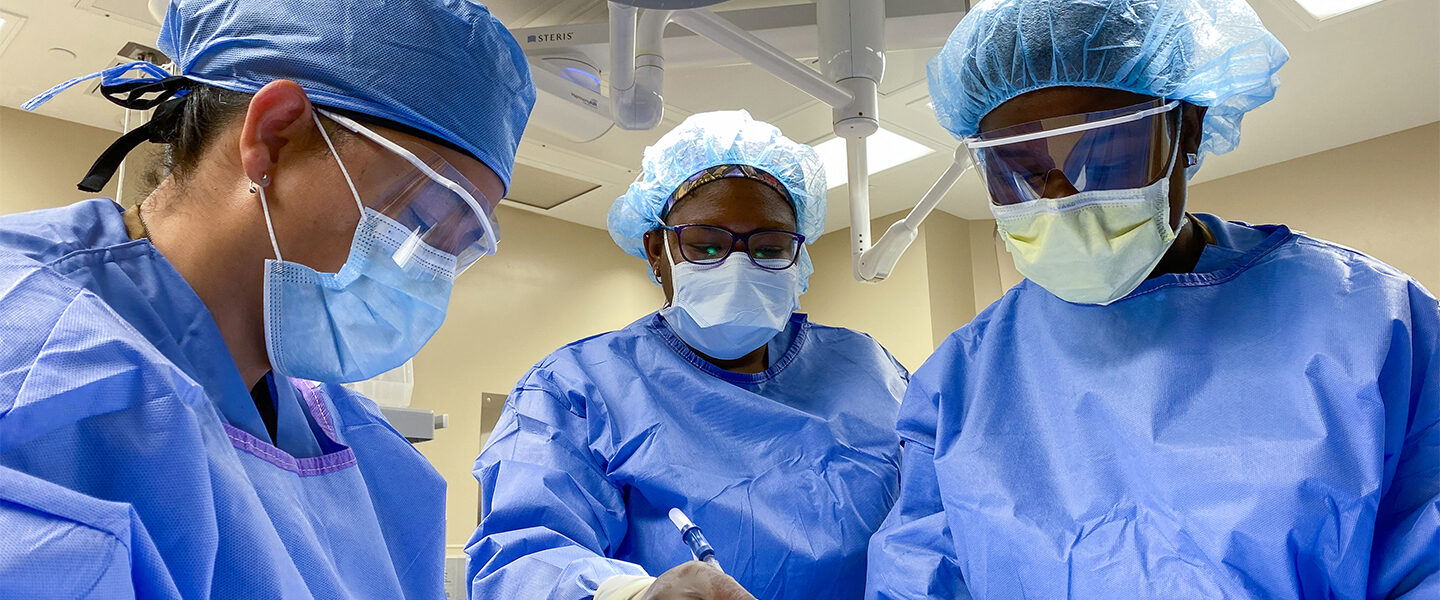
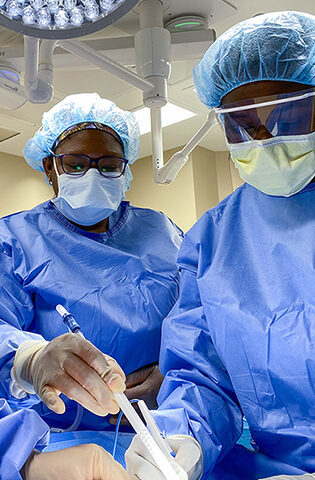
There is strength in numbers. In the healthcare field, this is a reality, not a cliche. And the force behind the enduring mission of HCA Healthcare is its transformative reach.
In North Carolina, Mission: Possible
Since acquiring Mission Health in Asheville, N.C., in 2019, HCA Healthcare has invested more than $95 million in capital improvements across eight facilities. They include a new North Tower and ER at Mission Hospital, a new Mountain Area Medical Airlift helicopter, new surgical robots for minimally invasive procedures and updated robots for joint replacements, upgraded imaging equipment, greater telehealth capabilities, $790 million in payroll and benefits, and $330 million in financial assistance.
“There are so many big things that we’re able to do,” says J.C. Sadler, vice president, Marketing & Community Affairs, at Mission Health. “Some are commitments we’ve made in the community as part of the acquisition: building a new mental health and wellness center, plus a separate mental health hospital, and expanding several of the other hospitals.”
Peak Performance During the Pandemic
During the onset of the COVID-19 pandemic, local communities were able to rely on Mission Health’s agile response and economies of scale. “The enterprise has so many resources, and we’ve been able to bring expertise to the table in a way that other hospitals and health systems in the region can’t,” says J.C. “Early in the pandemic, there was a supply chain issue where everyone was wondering, what do we do about masks?”
Mission Health soon found itself at the center of the solution. “HCA Healthcare partnered with a mask manufacturer, an international company, and they ended up in Asheville,” says J.C. “Now we produce level 1 and level 3 masks that are used across our system and elsewhere around the country, so we don’t have to worry about mask [supplies].”
As the pandemic also exacerbated staffing challenges for many facilities, Mission Health weathered that storm with proficiency, J.C. explains. “We have the ability to bring in traveling nurses or other personnel that some of the other local health systems locally can’t. We have access to the largest vendors and these great relationships that other people don’t. There’s a lot of security in that.”
Serving the Region
This work and caretaking at Mission Health are guided by powerful core values. Mercy, Excellence, Respect, Integrity and Trust (MERIT) shape the lifesaving decisions that our Mission Health colleagues make every day. In service to our western North Carolina communities, Mission Health has spent the last three years investing, advancing and raising the bar.
As a for-profit system, Mission Health has been a boon to the western reaches of the Tar Heel State, generating more than $60 million in income, property, provider and unemployment taxes. “We’ve been able to quantify the amount of money that’s going to teachers, schools and roads,” says J.C. “That’s really valuable. We’ve been appreciated in that way.”
Plans for 2022 include additional surgical robots at Mission Health, a new Angel Medical Center expected to open this summer, construction of the Sweeten Creek Mental Health and Wellness Center, and continued production at Mission Health’s personal protective equipment facility
Giving Back
At the community level, Mission Health is a shining example of HCA Healthcare’s commitment to being a responsible and generous corporate citizen.
“The framework for community engagement is very well thought out to find those areas where we can have the most impact,” says Annie Carpenter, Mission Health’s AVP of community engagement. “There are some strategic priorities that have been identified as national impact areas; each one of those resonates in western North Carolina and with other entities that are trying to solve complex community problems here.”
Mission Health is also migrating the enterprise’s many IT programs, and once that is completed, colleagues will have full access to giving and volunteering incentives, says Annie.
“This is one that I’m excited to share with our colleagues and our community, because it is a way to scale our culture of giving and volunteerism,” she says. “For many years, we’ve worked with our local United Way on days of caring and organizing volunteer outings for our staff.”
The organization’s model encourages people to think about what causes they care about and how they can give. Every colleague who donates between $25 and $500 to a charity of their choice gets a full match by HCA Healthcare. Volunteer efforts are also recognized, with $200 matched for every 10 hours of donated work.
“This is a $2,000 benefit per year per colleague. It’s not required, but it’s there if giving to the community is a passion,” says Annie. “We’re saying, as an organization, ‘We value this too. We know that if you’re going to live in our community and work at our hospital — one of the largest employers in the area — that we understand you care about the health of the community as well.’”
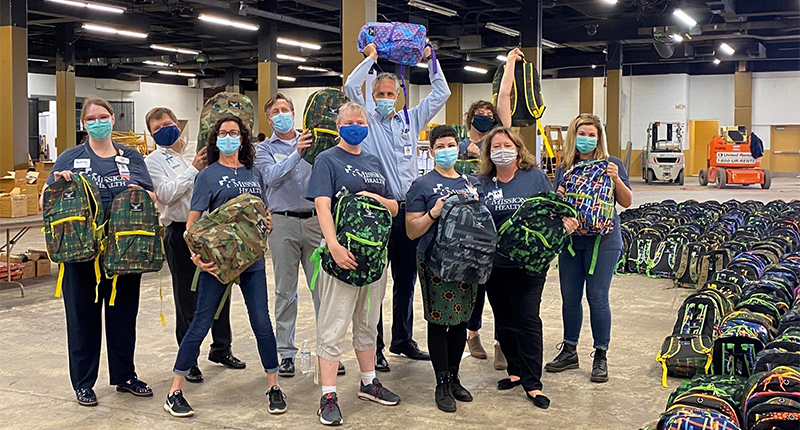
Last year, a group of Mission Health colleagues in North Carolina showed up for United Way of Asheville and Buncombe County’s 2021 School Supply Drive, contributing more than 200 fully stocked backpacks for students.
A Brand New State of Healthcare
The recent HCA Florida Healthcare brand launch was another step toward making healthcare more streamlined and less complicated. The rebranding united 49 hospital campuses, more than 350 care sites, nearly 11,000 active and affiliated physicians, and more than 77,000 colleagues across the state.
Those physicians and colleagues now know “they’re physically and visually connected to something bigger,” says Michael Malo, regional vice president of marketing for HCA Florida Healthcare. “A lot of times when you work at one facility, you get really focused on those four walls, and you only think about what you do and how it impacts that place where you work.”
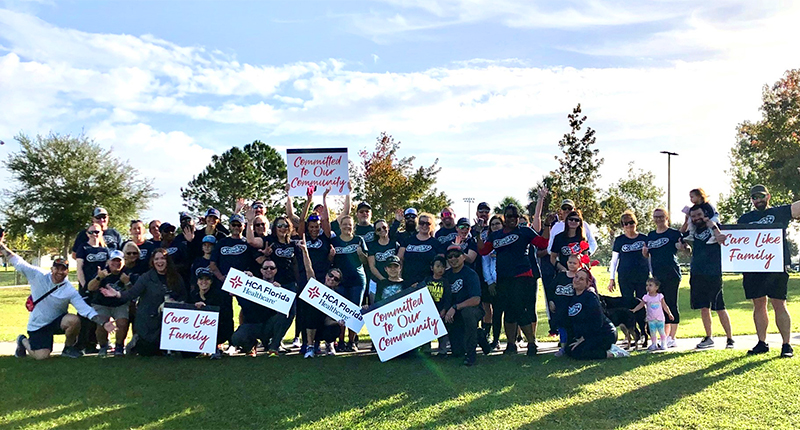
HCA Florida Healthcare colleagues celebrate the launch of the new brand.
With the new brand, physicians and colleagues can identify not only with Florida’s largest healthcare network, but also with one of the nation’s largest healthcare enterprises.
“This collective identity is something that people want to be associated with,” says Michael. “It’s human nature to want a sense of belonging in something bigger.”
The shared brand name also engenders a sense of shared responsibility, which translates to better care.
“You’re only as strong as your weakest link, right? So we need to make sure that all of our facilities are carrying the same standard as our top facility,” says Michael. “The key is that the brand also creates some accountability for certain practices and facilities to make sure that they’re delivering on that consistency and delivering on the type of experience that is expected of our name.”
This year, Mickey Mouse paid a special visit to our HCA Florida Healthcare colleagues at Capital Regional Medical Center in Tallahassee to celebrate 50 years of Walt Disney World and in honor of the state’s healthcare heroes.
Florida, says Michael, is a unique example within HCA Healthcare. “Consumers want the ease of a connected network. Unifying all of the different physician practices and hospitals gives that opportunity for consumers to easily find a care environment within our family of brands.”
The brand launch has also “given us a really cool opportunity to create some community engagement pillars. Whereas before a lot of those were created individually at a facility or within a division, now we’ve been able to consolidate some of them at a state level.”
For example, HCA Florida Healthcare is nurturing the next generation of providers through a $1.5 million commitment to Florida A&M University in Tallahassee and two new Galen College of Nursing sites in Gainesville and Sarasota — tangible examples of a community pillar growing healthcare careers, says Michael.
“We’ve made three significant additions to how we’re going to do that in the state of Florida. And that’s just the beginning.”

HCA Florida Healthcare colleagues celebrate an exciting new partnership with Florida A&M University’s School of Allied Health Sciences (SOAHS) in Tallahassee.
It’s human nature to want a sense of belonging in something bigger.— Michael Malo, regional vice president of marketing for HCA Florida Healthcare
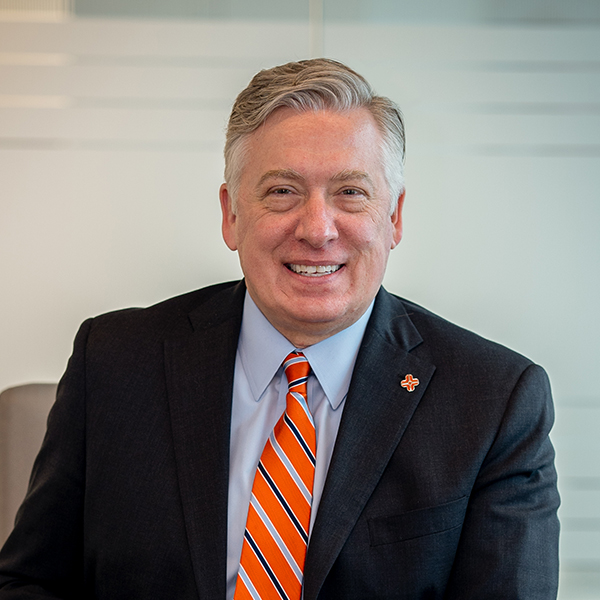
Michael Cuffe, M.D.
Executive Vice President and Chief Clinical Officer
Fostering Success for All
Getting to know Michael Cuffe, M.D. Executive Vice President and Chief Clinical Officer
From the moment you meet him, HCA Healthcare’s new executive vice president and chief clinical officer, Michael Cuffe, M.D., makes it clear that he prefers to be called “Mike.” It’s a small but important distinction — that Mike is here both for colleagues and as one himself. His goal is not to demand results, but to ensure that colleagues have the necessary tools to help them achieve excellence.
“Servant leadership is my top priority,” he says. “I view my success and my work in that I work for our patients, our doctors and our colleagues. If I help them be successful, then we all get to be successful.”
Mike’s primary objective in his new role is to leverage HCA Healthcare’s extraordinary resources to “help the organization with scaled solutions that allow them to practice better medicine, become more effective or become more efficient. Whether that’s nursing leadership, employment of physicians, Graduate Medical Education (GME) or best practices in the clinical agenda, we get to be the shared service. When I think about HCA Healthcare, I think about a quarter-million colleagues and 50,000-plus doctors and thousands of nurses. If I can just make it a little bit better for them, that’s fine.”
After graduating from the Massachusetts Institute of Technology, the Wisconsin native had his choice of medical schools. His decision to attend Duke University would be life-changing and career-defining. Over the next 24 years, he served the acclaimed North Carolina health system in many roles, including those of tenured faculty member and chief medical officer. In 2011, he “decided to make a pivot.”
At the urging of Jonathan Perlin, M.D., Mike joined HCA Healthcare as president and CEO of physician services, helping guide the organization on its way to becoming the nation’s largest sponsor of GME programs. In addition, his teams improved support for the physician partners and residents while broadening patient care by expanding urgent care operations.
Servant leadership is my top priority. I view my success and my work in that I work for our patients, our doctors and our colleagues.— Michael Cuffe, M.D.
A decade after joining HCA Healthcare, he succeeded Dr. Perlin, taking the reins of clinical services. Mike is now responsible for HCA Healthcare’s clinical agenda, overseeing clinical quality, nursing, care transformation and clinical informatics, while retaining his responsibilities with physician services. “The highlights of my career have been helping other leaders grow and have success.
Some of the best parts have been helping young students get to college, helping people get graduate degrees or simply helping people identify their best leadership characteristics and be successful in the longer term. I view clinical services the same way.”
That approach also applies to treating patients, he adds. “If I can help [physicians] get that right, you can help that many more people. I have the same view regarding all of HCA Healthcare and the clinical agenda. How do you help the nurses get more things right? How do you make their jobs easier? How do we make it easier for our doctors to practice medicine? How do we help the patients on their journey through the healthcare system?”
He says he hopes to enhance care by continually leveraging big data and research. “Whether the hospital you’re at has 100 beds or 1,000, if you’re getting care for a stroke or a heart attack, you ought to get the best practice. The scale of HCA Healthcare allows us to identify those things, and then help make sure that that’s what actually occurs from the standpoint of patient workflow, nursing workflow and doctor workflow. That’s a really nice place to be.”


